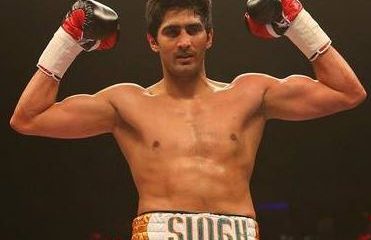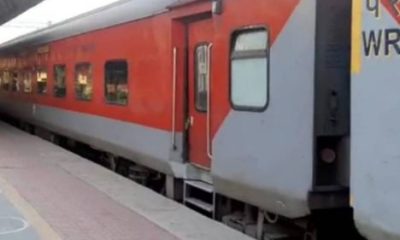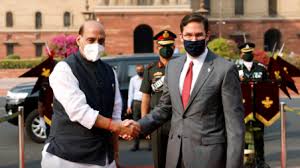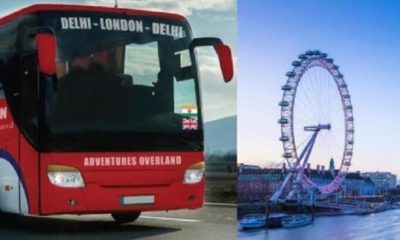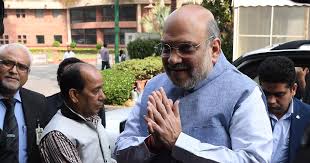National
50 years after 1965 war, veterans still rue territory returned to Pakistan

By Anjali Ojha
New Delhi: Fifty years after India and Pakistan engaged in a full-scale war, the return to Pakistan of territory captured by the soldiers still rankles the veterans of the 1965 conflict.
Even as they relate tales of bravery and unimaginable courage, the veterans, who now have the non-implementation of the One Rank One Pension (OROP) scheme to add to their disappointments with the country’s political leadership, question why the captured territory was given back.
One such veteran is Wing Commander K.S. Parihar (retd) of the Indian Air Force, who was all of 21 years when the war broke out and was also trained as a para commando because it was his job to airdrop these elite troops behind enemy lines.
“Pakistan thought a humble man like (then Indian prime minister) Lal Bahadur Shastri would not be able to take a stand against them…(Pakistani president) Field Marshal Ayub Khan was six foot tall. They had the latest arms and equipment dumped by America, but they forgot the Indian soldier fought for the love of his motherland,” Parihar told IANS.
“Our soldiers gave their blood, and all the land we captured was returned to Pakistan… we feel angry about it,” the veteran added.
Col V.S. Oberoi (retd), who is a veteran of not just the 1965 war but also of the 1962 and 1971 wars, was posted in the Samba sector of Jammu and Kashmir and was a part of the armoured corps that rolled into Pakistan and captured a key railway station, Alhar, that connected Sialkot to Rawalpindi.
“We crossed the border and we kept going for 16 days before the ceasefire was declared. In that period, we captured the Alhar railway station, cutting off Rawalpindi and Sialkot,” Oberoi said.
The veteran said the army collected a number of items as souvenirs, including the station master’s cash box, tickets and the station’s signboard.
“However, all that area was given back to Pakistan… We still feel angry about it,” he said. “Even the (strategic) Haji Pir pass (which reduces the distance from Jammu to Srinagar by over 200 km) was given back,” he lamented.
The commemoration of the 1965 war started on August 28 to mark the day when the Haji Pir pass was captured.
The return of Haji Pir to Pakistan through the Tashkent agreement has for long been seen by a section of experts as a mistake on the Indian side.
Another tale is that of Lance Naik Sadananda (retd).
In a dramatic operation, Sadananda, who was 25/26-year-old at the time, along with other soldiers, blew a bridge over the Satluj river that was under the control of the Pakistanis.
“The bridge was over the Satluj and in Pakistan’s control. We were given the task of blowing it up so that Pakistanis could not cross over to our side,” Sadananda said.
For about 1.5-2 km the Lance Naik crawled to the bridge, avoiding enemy fire, with explosives filled in his backpack and pouches.
“There was a railway line under the bridge, we climbed up the bridge using ropes, put the explosives in place…and blew the bridge up,” the veteran said.
“But when the territory was given back to Pakistan, the soldier in me was hurt,” he added.
Equally exciting is the story of Lt. Gen. Ashok Agarwal (retd) who was defending Srinagar airport against the enemy.
“Enemy aircraft would fly above us, but our soldiers were brave. They were fearless, they would train their guns at the enemy aircraft,” Agarwal said.
All that the soldiers had were radars to track the enemy aircraft and L-60 guns to shoot them down.
“We never gave up, we did not fear for our lives,” he added, pride glittering in his eyes.
Nearly 3,000 soldiers, sailors and airmen were martyred in the war, which lasted 17 days.
The war ended with India capturing around 1,920 sq km of Pakistani territory, while India had lost around 560 sq km of land.
The Tashkent Declaration was signed on January 10, 1966, between India and Pakistan. This saw both the countries return to the pre-conflict positions by returning the territory they had captured.
The veterans, however, add that their war at present was for getting OROP.
“If the government honours its promise that will be true respect for us,” Agarwal said.
The programmes lined up for the commemoration from August 28 to September 26 include honouring of veterans – but they say they will boycott this.
“We will not attend any government function if our demands are not met,” Parihar added.
National
Foodman Vishal Singh Honored for Hunger Free World Mission in Bangkok

Lucknow: Vishal Singh, a renowned social worker from Lucknow, also known as Foodman, has once again made India proud. He was honored by the Happy Hands Gloves Cooperative Limited Company in Korathai, Thailand, for his work with the Hunger Free World Mission.
The Hunger Free World Mission’s meeting was held in Korathai, Thailand, under Vishal Singh’s leadership. Representatives from several countries, including Mr. Raja Dwivedi (Managing Director of Happy Hands Gloves Limited), Thailand Coordinator Mr. Raja Mishra, and member Mr. Varun Singh, attended the event.

Under Vishal Singh’s leadership, the attendees took a pledge to work together toward creating a hunger-free world.
Speaking on the occasion, Vishal Singh explained that the main goal of the Hunger Free World Mission is social participation. He said the mission is not just about feeding people but also about meeting other basic needs of those who are struggling. The mission focuses on helping families of terminally ill patients in hospitals by providing food and shelter. It also works to fulfill essential needs like education, jobs, and care for the elderly.
For the last 16 years, the Vijay Sri Foundation has been providing free services, benefiting thousands of people. Vishal Singh highlighted that the mission aims to gain global recognition like other organizations such as WHO, WWF, and Red Cross, which work for social causes.
During this meeting, Vishal Singh was appointed as the Chairman of the Hunger Free World Mission by representatives from various countries. They also discussed holding regular meetings in different countries to push the mission forward.
Business tycoon Dr. Abhishek Verma has also supported this humanitarian mission, vowing to promote the idea of “Seva Parmo Dharma” (Service is the highest duty) worldwide. Vishal Singh praised him, stating that people like Dr .Abhishek Verma inspire others to work for the betterment of society.
Recently, Romania’s Ambassador, Mr . Daniela Sezonov Ţane, invited Vishal Singh to the Romanian Embassy in Delhi, where they discussed the mission in detail. Impressed by his humanitarian work, she honored Vishal Singh and invited him to Romania to take the mission forward .
Food man Vishal Singh has been serving the people of India for the past 16 years. Through the Vijay Sri Foundation, he provides free meals to cancer patients & their families ,shelter, and education for women & children along with running free old-age homes in Lucknow.
In addition to his humanitarian work, Vishal Singh also addresses issues like crime and corruption through his role as Chairman of Seva Path Media and Managing Director of Vijay Sri Foundation.

During the COVID-19 pandemic, Vishal Singh and his team worked tirelessly to provide food and help to the needy, including starving children, elderly citizens, and pregnant women. Despite contracting the virus himself, he continued to assist others after his recovery. He even created a life-saving oxygen regulator using household items, which was praised by doctors both in India and abroad.
In his address at the meeting, Vishal Singh spoke about his mission to create a hunger-free world. He pointed out that India’s large population, along with issues like unemployment and poverty, has caused the country to fall on the Hunger Index. He urged people to contribute just one handful of grains daily to help create a hunger-free world.
He concluded by saying that through social participation, we can empower the people around us, meet their basic needs, and work together to build a stronger, more prosperous, and developed society.


